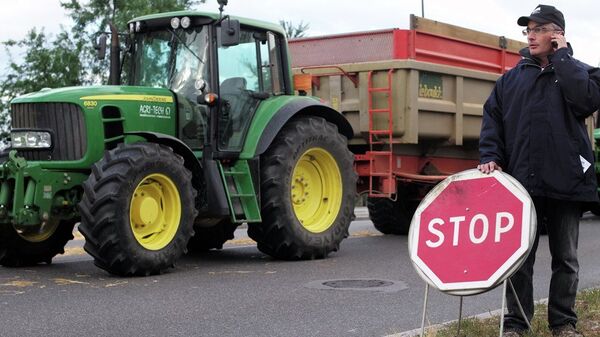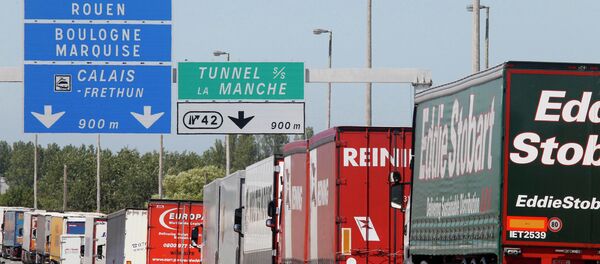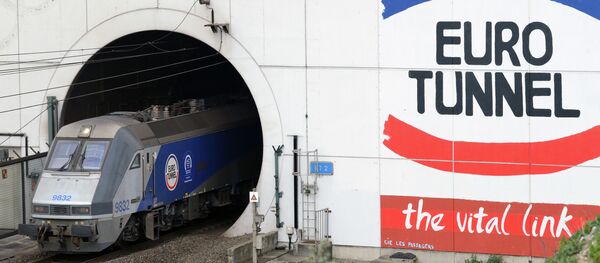Meanwhile, roads between Spain and France and Germany continued to be blocked by French farmers over a fall in farm produce prices. The farmers are preventing produce from the other EU member states entering France.
The French Government is coming under enormous pressure to stop the blockades, which have caused road and rail chaos in England and France for weeks, whilst showing no sign of abating. To make matters worse, the huge number of migrants arriving in Calais, hoping to jump onto trucks and trains to reach Britain, has become a major problem for security services.
French farmers block trucks that transport food goods coming from foreign countries,French German border,#Strasbourg pic.twitter.com/cbJaHQWJUQ
— ✌☮#ThisIsACoup ☮✌ (@Chara_fc) July 27, 2015
There is growing tension between London and Paris over the chaos in and around Calais with many British people believing the French are deliberately doing little to prevent the disruption to trains and ferries.
The Treaty of Rome demands 'the abolition, as between Member States, of obstacles to freedom of movement for persons, services and capital' — however, this rule is frequently ignored in France when workers wish to make a stand against just about anything.
Centuries of Blockades in France
The French tradition of blockading roads and ports to get their way in political or industrial matters goes a long way back. French popular uprisings and the practice of using "barrages" to prevent movement of people or traffic dates back to the Revolution, through the Paris Commune, into the Resistance and remains to this day.
Spain's truckers are suffering blockade by French farmers against foreign produce. http://t.co/NAHAUWPnJq pic.twitter.com/VtnHMLBmth
— Fiona Govan (@fifimadrid) July 27, 2015
In 2009, fishermen demonstrating against overfishing blockaded the ports of Calais, Boulogne and Dunkirk, as well as many other smaller ports and marinas, affecting not just the fishermen, but also yachting and tourism.
The industrial action at Calais follows the closure of MyFerryLink which was forced on its operator, Eurotunnel after a UK Competition and Markets Authority (CMA) ruling that the tunnel operating company could not be allowed to run a ferry service, because the group controlled more than half the cross-channel market.
MyFerryLink was due to be sold to a workers' co-operative, SCOP SeaFrance, but talks broke down and the decision was made to sell the passenger business to DFDS Seaways, which took effect on July 1, 2015. An offer by DFDS to take on 200 of the MyFerryLink workers was rejected, leading to the industrial action.




